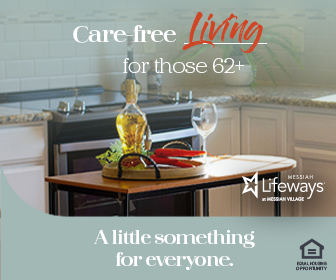As an aging parent or loved one begins to decline or falter, naturally we want to help. That help could be as simple as cutting their lawn or driving them to doctor appointments or errands. If needs increase, your help could consist of cooking or cleaning for them, or hiring a home care agency to provide assistance in their home. Further on down the line it could mean helping them move to a personal care home, assisted living, or a nursing home if necessary.
However, what if they refuse help or won’t move from their home? This is a quandary that many adult children, powers of attorney and caregivers face with an aging parent or loved one who is declining and becoming more and more dependent. It begs the question, “How do I persuade or even force them to get help?” Fortunately, many people recognize their limitations and welcome the help as it’s needed. We also know that just as many resist intervention and often state, “I’m fine, I don’t need help” or “I don’t want some stranger coming in my home to help me” or “you’ll have to take me from my home in a pine box.” Yikes!
It’s hard to admit we need more help as we age, that we can’t do what we used to, or that we now must rely on others to get through each day. Pride, stubbornness and denial are traits that we all have, but when it’s an aging loved one that we feel is at risk, it can be a precarious dilemma. It pits your better judgment and concern against their right to choose. It’s not a science, and it’s certainly not a black and white problem you can resolve. So how do you know when you have to force your hand and mandate change? Let’s explore the challenges a bit more.
Gray, Gray and Gray
First, your hair may become gray as you worry about the safety and well-being of a parent who is really becoming more of a reckless driver, is falling more frequently, or has left the stove on several times and almost burned the house down. Next, gray matter comes into question as we age. Although no matter your age, we all occasionally forget to use our brains. But as older adults make what you think are poor choices regarding their own health and safety they tend to come under a lot of scrutiny by those who love and worry about them. Where do you draw the line and where do hold back? This is a gray area as well. There are a lot of variables, challenges, what-ifs and sleepless nights involved.
In certain times it’s very clear when a parent or spouse has declined and needs immediate assistance and intervention. Injuries like a fractured hip, a stroke and hospitalizations often leave them little latitude to make poor decisions. And if they do balk at getting help, the hospital and or physician can press for a safe discharge or placement. Also a dementia or mental health diagnosis changes the dynamic and can often mandate formal intervention. As a last resort, you could file for guardianship (conservatorship), but that can turn into a long, drawn out and costly process that may require the person in question to be deemed incompetent by a judge.
But what about that person that is mentally intact and lucid? They may not be a danger to themselves or others; however, you see them teetering and declining before your eyes. You want them to be proactive, and you encourage them to seek help or to move to a care community because the writing is on the wall. But again they’re “kindly defiant” or downright bullheaded and claim they are fine and don’t need help. You’ve tried for a long time to make things better, but have always come up against a brick wall. What can you do?
Walking a thin line
For those who’ve have pushed and pushed to no avail, there is a surprising yet simple answer. It may sound crass, but sometimes must allow things to naturally occur and allow that person to fail. For some, they need to figure it out on their own or “the hard way.” This is not to suggest that you wash your hands of the situation. You must maintain your commitment and continue helping them any way you can; however, you cannot force them into a decision and we should honor their right to make bad choices. Their failure may result in a hospitalization, the worsening of their health, or other negative outcomes. But it might just be the necessary wake-up call they need. It’s a tight rope to traverse.
Again, this is not just about you as copping a laissez-faire attitude; it’s actually an approach that many human service agencies must follow. There’s a misconception that these agencies can just swoop in and force someone to get help or move from their home or that a power of attorney can do the same. A government agency or a judge can’t just strip someone’s right to choose, because of “what ifs.” If they can show that they are not a true danger to self or others, they have the right to refuse help or refuse to move. It’s hard, but often we have to live with it and just wait in the wings to then jump in and help.
Preemptive Preparation and Patience
Another thing you can do is to be prepared for worse case scenarios. Maybe if they are not willing to actually engage home care services or move to a care facility, they might at least be willing to listen to a plan of care in case of emergency. Research the options and services, costs and how you or they would pay for them. Set those wheels in motion. Tell your parent, “I understand you don’t want help, but if you need it, I’ve done some research and these are some of your options, etc.” Have a plan in place to help cushion the blow. You should also reach out to their healthcare providers and the local Area Agency on Aging to put them on notice, although many have likely already jumped through this hoop and connected.
Lastly, be patient with this person. Badgering or yelling won’t help. Understand where they are coming from, be supportive, stay committed and be humble when they come to grips once they realize they need help.
Additional articles to read…
–CASES; The Right to Make a Bad Decision by Dr. Sandeep Jauhar from the New York Times
-aPlaceforMom.com SENIOR LIVING Blog: 8 Expert Tips for When Aging Parents Won’t Listen
If you need additional guidance on this topic or others related to caregiving, please contact the Messiah Lifeways Coaching office at 717.591.7225 or email coach@messiahlifeways.org.






